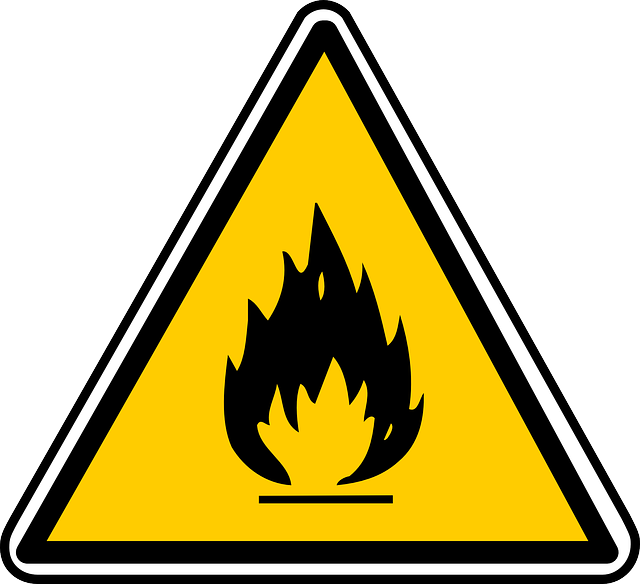Usually our Word Choice blog posts cover terms that seem similar but have different uses. Today, though, we’re looking at two words that look different on the page but mean exactly the same thing. The words in question are ‘flammable’ and ‘inflammable’ and they cause a lot of confusion!
What Flammable and Inflammable Mean

‘Flammable’ and ‘inflammable’ both mean ‘catches fire easily’. Despite this, people often think these words are opposites, with ‘inflammable’ meaning ‘does not burn’. This is not true, though!
Obviously, if people are understanding a word that means ‘burns easily’ as ‘flame resistant’, this can cause serious problems. So how did we get to this situation?
A Confusing Prefix
The problem is that the prefix in- often indicates a negation in English. Adding ‘in-’ to the start of a word can therefore create its antonym (i.e. a word with the opposite meaning) in some cases.
For example, we use the word ‘discreet’ when we are describing being careful not to cause embarrassment or attract attention. But if we add an ‘in-’ prefix it becomes ‘indiscreet’, which means ‘saying things that should be secret or doing things that embarrass people’.
Find this useful?
Subscribe to our newsletter and get writing tips from our editors straight to your inbox.
But while ‘discreet’ and ‘indiscreet’ are opposites, this is not how the ‘in-’ at the start of ‘inflammable’ works. Another use of this prefix is to mean ‘cause to be in’ a certain state, similar to the prefix en- in words like ‘enslaved’ or ‘enraged’. A material is thus ‘inflammable’ if it is prone to catching fire!

‘Inflammable’ is even the older word here. However, when ‘flammable’ was introduced to mean the same thing in the nineteenth century, people started to confuse ‘inflammable’ for its opposite.
Flammable or Inflammable?
The question, then, is which term you should use in your writing. Because of the potential for confusion set out above, we suggest always using the word ‘flammable’.
This will prevent anyone thinking you mean the opposite of what you intended. And when we’re talking about things that might catch fire, clear communication is especially important! If you need a term for something that doesn’t burn, try ‘non-flammable’ instead.



